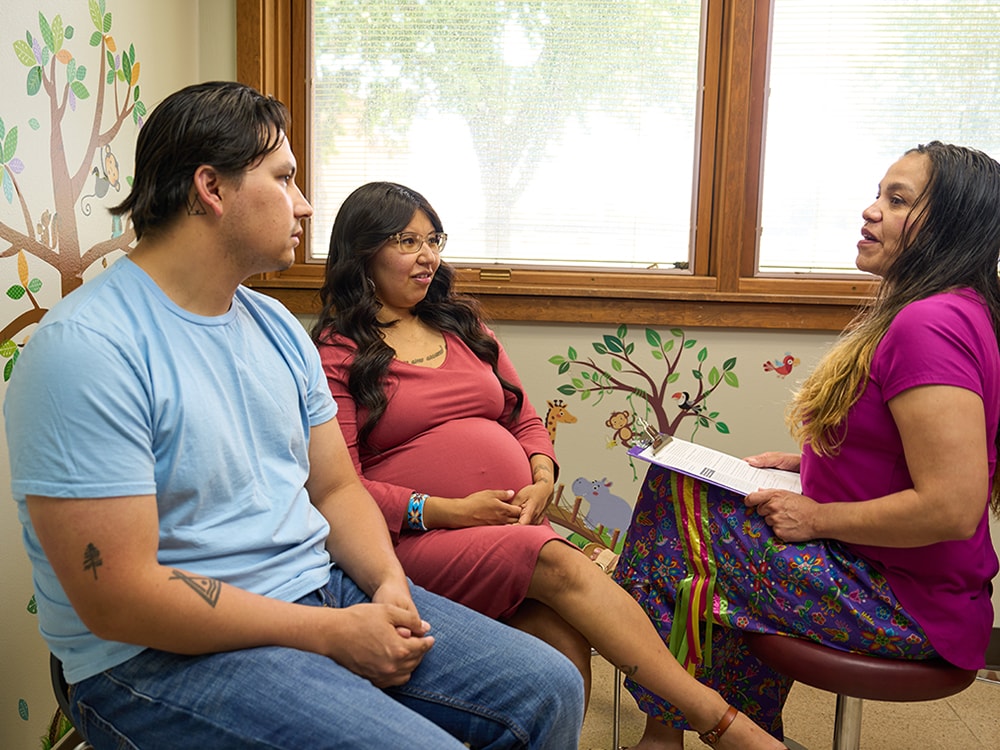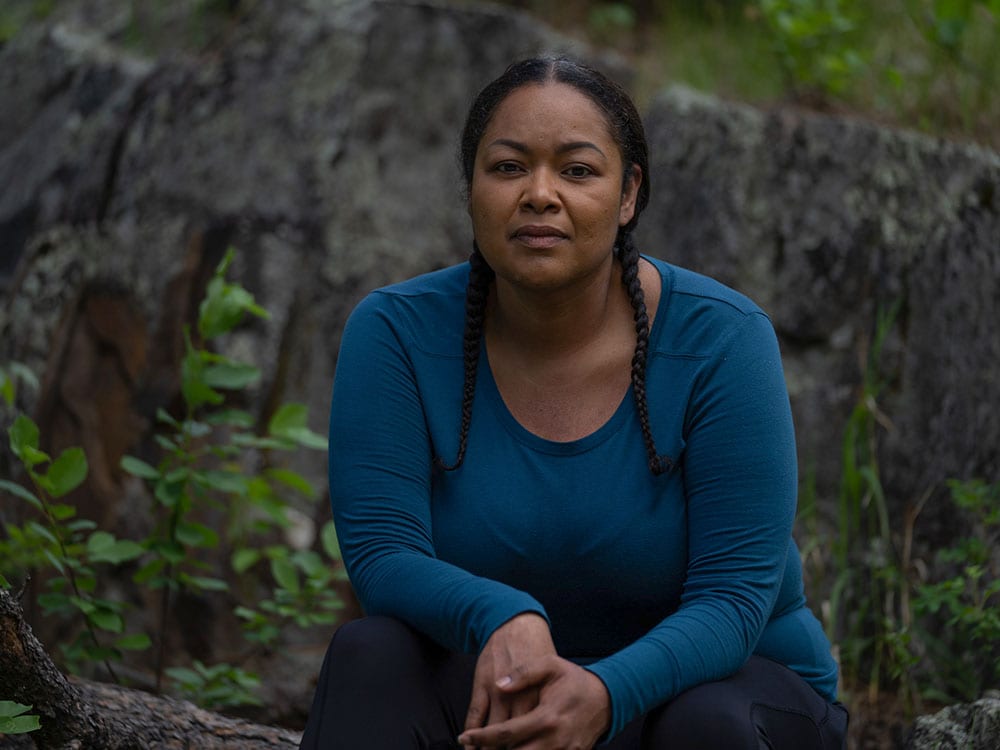Healthcare Professionals who serve American Indian and Alaska Native People who are Pregnant or Postpartum
As a healthcare professional, you play a critical role in eliminating preventable maternal mortality. One part of the solution is to really hear women’s concerns during and after pregnancy. For people to feel comfortable sharing their concerns, they need to trust you.
Many American Indian and Alaska Native women find it hard to trust healthcare professionals because they have experienced challenges getting the health care they need, including experiences of racism and discrimination in healthcare settings. In addition, the history of forced sterilization, and infant separation policies has made it difficult to trust healthcare professionals and government.
What Can You Do?
- Take time to make your patients feel understood and respected during their visit with you.
- Ensure your patients understand what you have discussed during their visit and that they are comfortable with their plan of care.
- Practice culturally appropriate care, which includes respecting cultural practices that you may not be familiar with but are important to your patient. Learn more about how to provide culturally appropriate care in your facility and ensure your patients’ needs are met.
- Acknowledge and address any biases or stereotypes that may affect the quality of care you provide.

It is important to build a relationship with your patient, support their cultural strengths, and ensure they feel safe sharing their needs and concerns.
Learn more about Disparities and Resilience among American Indian and Alaska Native People who are Pregnant or Postpartum
Culturally Appropriate Care
Understanding and respecting the unique needs and cultural practices of each patient is an important part of building trust and providing medical care.
Cultural practices vary across tribes, but may include language, traditional foods, ceremonies, traditional values, spiritual beliefs, stories, songs, traditional plants, birthing practices and more. Many American Indian and Alaska Native people draw strength from traditional ways of living, places, and practices. There is diversity in the culture, medical beliefs, and practices of American Indian and Alaska Native people. Take the time to understand if there are cultural practices that are important to the patient you are serving.
In many healthcare relationships, the healthcare professional and patient come from different cultural backgrounds. Understanding and accepting those differences is important for providing culturally appropriate care.
Practicing culturally appropriate care can include acknowledging traditional medicine that is based on indigenous knowledge. The UN Declaration on the Rights of Indigenous People affirms indigenous peoples right to their traditional medicines and to maintain their health practices. Take the time to understand the practices that are important to the patient you are serving.

“My OB knew that I wanted my placenta so that I could bury it. There are cultural birth practices for our Lakota women, the placenta is a part of our body that is connected to our child. It is a life source that was connected to the creator, mother and baby… they threw it away...that was very disrespectful. What was supposed to be a part of my birthing plan and deemed sacred was dismissed. I felt like nobody understood or cared.”
Addressing Biases in Care of American Indian and Alaska Native People
The tragic reality is that American Indian and Alaska Native women are two times more likely to die from pregnancy-related complications than White women. A growing body of research documents the role that structural racism and implicit (or unconscious) bias plays in generating health disparities across a spectrum of outcomes.
Healthcare professionals must acknowledge and address their own biases or stereotypes that may affect the quality of care they provide. Learn more from Combating Implicit Bias and Stereotypes (hhs.gov) [PDF – 180 KB]
Be conscious of how the impacts of structural racism and personal biases may affect your patient’s care and health outcomes. Ensure every patient is provided respectful, patient-centered care. Participate in training opportunities such as “Think Cultural Health” to help ensure every patient is provided respectful, patient-centered care.